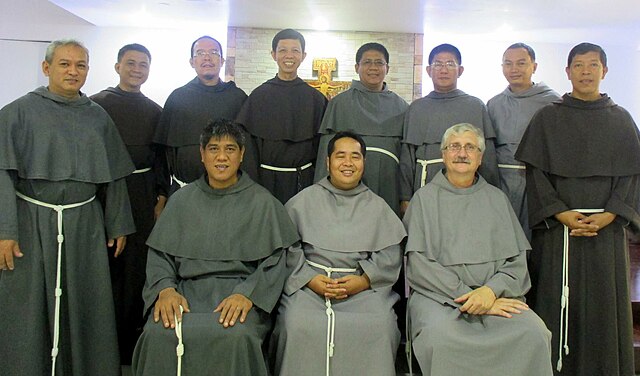A friar is a member of one of the mendicant orders in the Roman Catholic church. There are also friars outside of the Roman Catholic church, such as within the Anglican Communion. The term, first used in the 12th or 13th century, distinguishes the mendicants' itinerant apostolic character, exercised broadly under the jurisdiction of a superior general, from the older monastic orders' allegiance to a single monastery formalized by their vow of stability. A friar may be in holy orders or be a non-ordained brother. The most significant orders of friars are the Dominicans, Franciscans, Augustinians, and Carmelites.
A group of friars; novices of the Order of Augustinian Recollects at the Monastery of Monteagudo in 2006
Conventual Franciscans in their variant grey habits
Mendicant orders are, primarily, certain Roman Catholic religious orders that have adopted for their male members a lifestyle of poverty, traveling, and living in urban areas for purposes of preaching, evangelization, and ministry, especially to the poor. At their foundation these orders rejected the previously established monastic model. This model prescribed living in one stable, isolated community where members worked at a trade and owned property in common, including land, buildings and other wealth. By contrast, the mendicants avoided owning property at all, did not work at a trade, and embraced a poor, often itinerant lifestyle. They depended for their survival on the goodwill of the people to whom they preached. The members of these orders are not called monks but friars.
Cluny Abbey, a former Benedictine monastery in Saône-et-Loire, France. It was at one time the center of Western monasticism.



